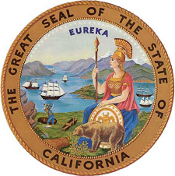Formal regulations for EKG technician training and certification requirements in California do not currently exist. Many healthcare facilities develop their own standards for an individual who administers the electrocardiogram exam, heart monitoring, and cardiac telemetry. In some situations, the employer may prefer to assign tasks to employees who have formal education and training. Individuals who want to pursue this profession often begin their career in a different allied health profession before transitioning to the role of technician.
As the demand for healthcare services continues to increase, many facilities have begun to take advantage of the ability to delegate certain nursing duties to unlicensed medical professionals. In most states, the Board of Nursing has created a Nurse Practice Act that outlines the requirements for delegating duties and ensuring patient safety. An EKG technician working in California may be subject to nurse delegation regulations while performing cardiac monitoring procedures. In these types of cases, the registered nurse is generally responsible for assessing the condition of the patient, ensuring the competency of the technician, and evaluating how well the procedure was performed.
Delegation Guidelines
According to California’s standards of competent performance, a registered nurse may…
“Delegate tasks to subordinates based on the legal scopes of practice of the subordinates and on the preparation and capability needed in the tasks to be delegated, and effectively supervises nursing care being given by subordinates.“
Education and Training Requirements
While EKG technician certification is not mandated in most states, individual employer expectations vary. Voluntary completion of both formal training and certification demonstrates that the individual is competent to provide direct patient care and deserving of a higher salary, better benefits, and more career advancement opportunities. As the medical environment continues to come under the scrutiny of the federal government, administrators are feeling the pressure to adopt higher standards for competency assessment and are adopting more rigid requirements for new employees. Some facilities now expect technicians to complete a two to four year college degree program in an allied health profession along with a minimum of two years of experience as a nurse’s aide, medical assistant, or radiologic technologist.
There are many actions that can be taken to become an EKG technician in California. First, it is very important for aspiring technicians to inquire about employer expectations. Second, individuals should acquire experience through job shadowing, volunteerism, and entry-level employment. Third, applicants should become actively involved in local, state, and national organizations. Influential individuals tend to maintain membership in these organizations and they can serve as an invaluable source of information for career advancement.
Career Entry Opportunities
Healthcare is a unique employment sector because of the diversity of career opportunities that are available. In many cases, individuals who decide to pursue the EKG technician profession begin their healthcare careers as a nursing aide, medical assistant, or radiologic technologist. While the path to becoming an aide or assistant is subject to few regulations, a radiologic technologist must often complete a formal degree program, certification, and licensing before being allowed to provide direct patient care. Individuals who intend to work in radiology before making the transition to the cardiovascular department are well-advised to research the regulations that affect them.
The Radiologic Health Branch (RHB) of the Food, Drug, and Radiation Safety Division within the California Department of Public Health is the state organization that licenses radiologic technologists. Other tasks assigned to the RHB are as follows: providing public health functions, administering a radiation control program, licensing of radioactive materials, registering x-ray producing machines, certifying radioactive material users, investigating radiation incidents, inspecting radiation facilities, and conducting ongoing surveillance of radioactive contamination in the environment.
State Contact Information
California Department of Health
Phone: (916) 552-8700
Toll-Free: (800) 236-9747
Email: cna@cdph.ca.gov
 PO Box 997377, MS 3000 Sacramento, CA 95899
PO Box 997377, MS 3000 Sacramento, CA 95899
Phone: (916) 322-3350
Fax: (916) 574-7697
Email: BRN.Licensing@dca.ca.gov
PO Box 944210 Sacramento, CA 94244





